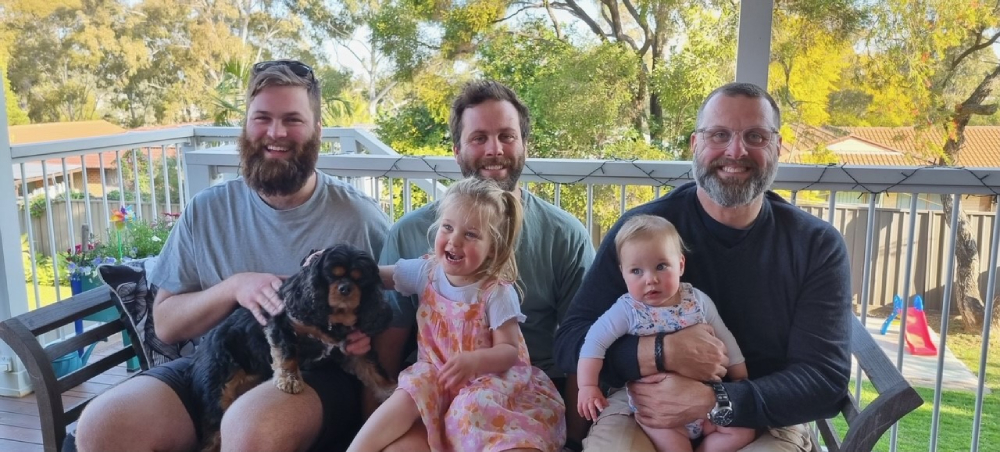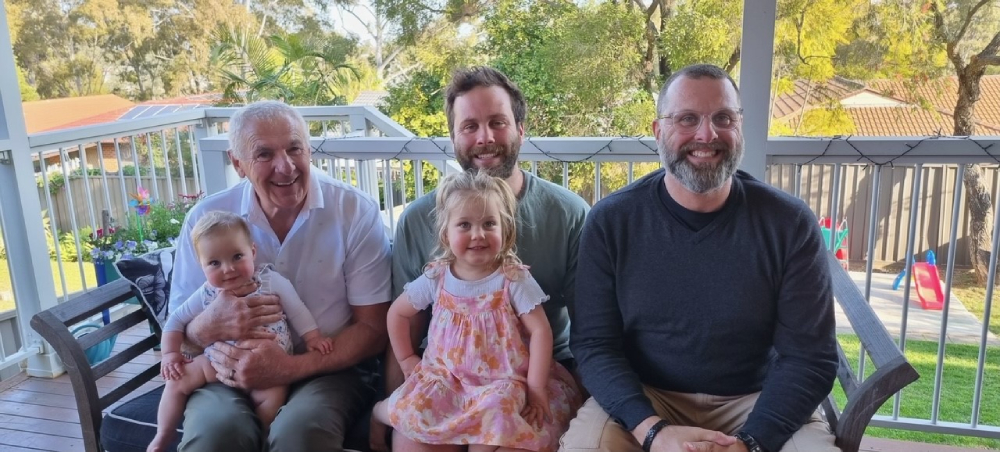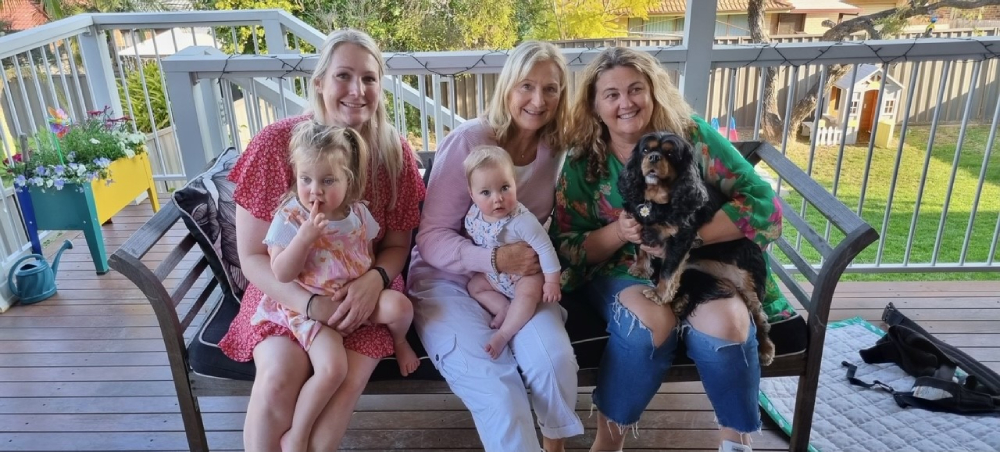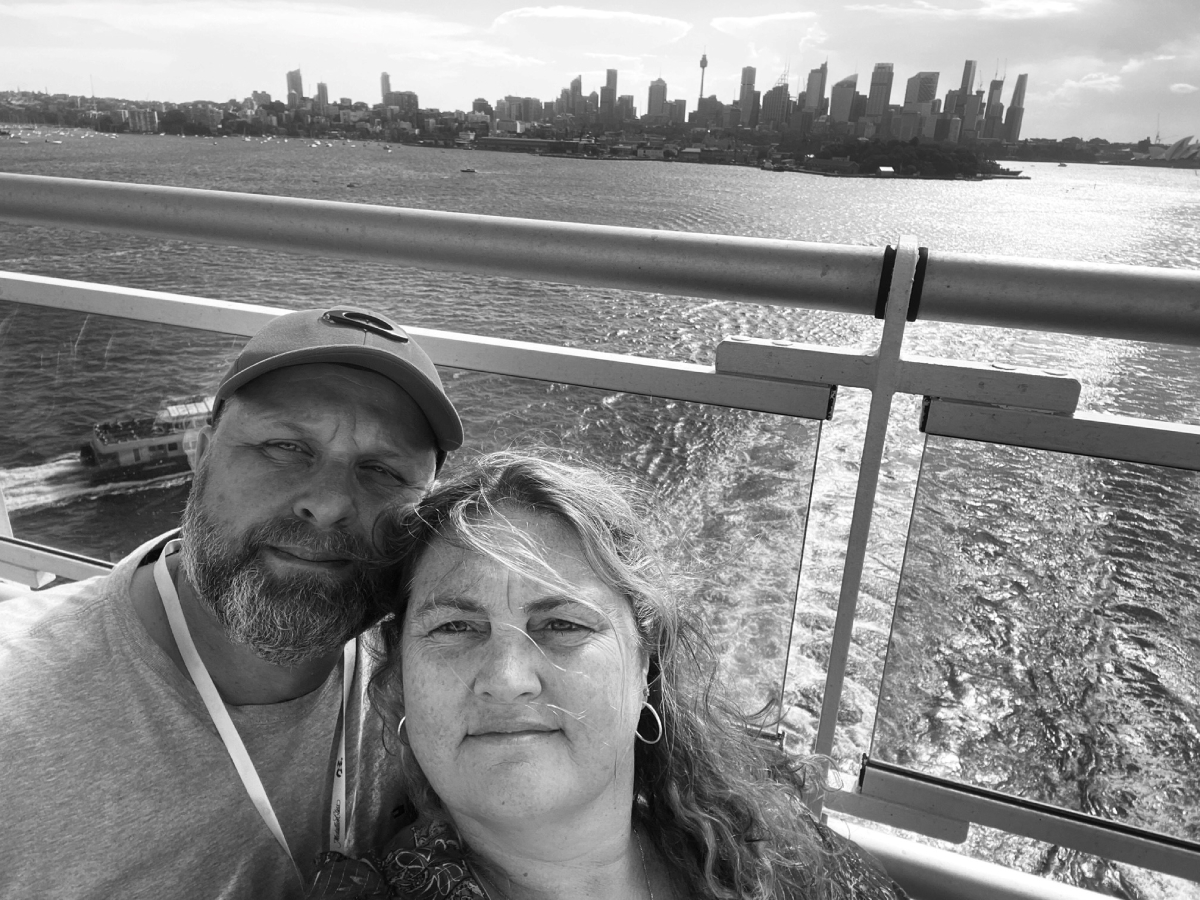Chris Baddock, former CEO of ALM, recently sat down with Clare Adamiak, ALM’s National Senior Marketing Manager to talk about his last four-and-a-half years with the business.
Adamiak: Chris, generally your first interaction with staff in the office is a grand sociable “Morning!”. What has normally already happened in your day before this greeting?
Baddock: My diary before 9am is sacred; taking time to prepare the mind and get into the headspace for the day is essential. I usually start my day with a morning walk and breakfast while reading the paper, it is a rhythm of mindfulness I’ve had for a while. The routine helps me get rid of distractions. Post 9am, I’m sociable in the office and enjoy a chat so I take a walk around to gauge what’s on peoples’ minds.
Adamiak: Your passion for independents is second to none, but knowing you were dealing with ALM’s success, as well as the success of our retailers, must have weighedon you during Covid?
Baddock: Our retailers have an up-close view of their customer and an intimate relationship with them so you can never stop listening to them. However, it does require a balance as all retailers have differing experiences in their stores. The view of the total network, together with the up-close view, is required every day. This balance can create sliding door moments.
During Covid, listening to a National Retail Board (NRB) member talk about one of their shoppers asking for the “cheapest beer you have got” – this was an insight which proved that being close to the customer through our retailers is a massive competitive advantage.
At the beginning of Covid we had the option to pull back trade spend and sell liquor for more, but shoppers were looking for value with the fear of the unknown. Off the back of the NRB recommendations we made the decision keep our promotional program and our foot on the accelerator. That was a sliding door moment for us to remain competitive. When the consumer went to their local store for potentially the first time, they liked what they saw. People flocked to local, and they stayed.

Adamiak: You recently shared with me the story of your fancy pen moments, and one which required eight signatures was a deal with Kollaras – why was this one so important?
Baddock: Simply because it was so right for our retailers and on-premise venues. Private label is in my background (Pinnacle Drinks) and having a strategy for it was important for independents. It is a massive part of the tool kit for our retailers, and buying the Kollarasbrands gave us scale quickly. Private label brings value and quality to the consumer and margin to the retailer – win, win, win. Our strategy has evolved, and we are executing with more exclusives of supplier brands rather than owning the brands like others prefer.
Part of the ALM strategy is being famous for our brands – this also includes our range of owned and exclusive products for our retailers. It was hugely important for me to provide end-to-end service for our retailers and venues.
Adamiak: You’re a huge advocate of driving the right leadership behaviours. What does leadership mean to you?
Baddock: I have worked for organisations where people wore name badges with title and length of time in the business. Title, multiplied by years served, determined an artificial hierarchy: the longer you were in the business the more perceived authority you had. When I came to ALM there was no hierarchy at all. You felt like you were on the same level, you could have the important and hard conversations, and as a leader I loved that. There is an old saying that “the summit melts from the bottom”, therefore the person sitting at the top doesn’t know they have a problem until the water is lapping at their feet. Unless you’re in contact with where it is melting you don’t realise you have a problem and don’t do something about it until it’s too late. Therefore, you must give everyone the freedom to speak openly and honestly, particularly with the CEO. I have also developed relationships with retailers, who I see as peers, who speak openly about their truths and have the courage to trust me to gatherthis information and do the right thing by the entire business.
Adamiak: You talk of decision making as 70 per cent alignment and 100 per cent commitment in a role, like a CEO, however, decision making and gaining commitmentisn’t easy.
Baddock: Decision making, particularly in leadership roles can often be subconsciously made – it becomes part of your DNA so you must avoid making a call before the debate commences. You owe it to your team to allow them to bring ideas to the debate. “The sum of the team is greater than the sum of the individuals.” It’s a well-trodden line but hardly ever practiced in the C-suite.
Your beliefs and values that sit under the water line allow you to make decisions subconsciously, and you must be aware of this to allow passionate, unhindered debate.

I know I have a strong value set around fairness when it comes to decision making. However, this doesn’t happen overnight and needs to be built through experience and confidence in your own ability. When I started my leadership journey, I had a framework for decisions: what is right for the customer, right for the business, right for the people in the business, right for the long term, and have we got the money?
I use a model where I try to understand my competence (and others) on the subject at hand:
• When you start out you are unconsciously incompetent.
• You find out how to do something and shift to consciously incompetent.
• You work through the ‘how’ and become consciously competent.
• And finally, when it becomes second nature, you become unconsciously competent. You have to be careful at this stage as confidence can be seen as steamrolling others. Always try to seek to understand before you seek to be understood.
I found this could be applied to so many things. As you work through the framework having a team around you is critical – one that you know is on the bus. You need their support but also their trust to share a differing of opinion and a reason why to work through. You need followers who trust you and have confidence in your ability to make decisions. The good followers, particularly in a role like this, if part of decision will then go and execute what you have collectively decided.
Adamiak: Passing the baton is never easy and certainly not easy for you with your health playing such a big (and important) role for you. What advice would you give thenext CEO?
Baddock: After doctors told me that I needed long term rest to recover from cardiomyopathy, my mother called me and said that she was worried. It was a good reminder to stop and think about my priorities – Samantha, my kids and now the grandchildren. So yes, making this decision was extremely hard but also the right thing for me and my wonderful family. As much as it was a difficult call, which took some time to make in the end, it was also a simple one to make.
For the next CEO it is simple: be your own person, execute with your flare and style, be the best you can be, make a difference and have a great time doing it. Go after your own ideas and don’t live in anyone’s shadow.


